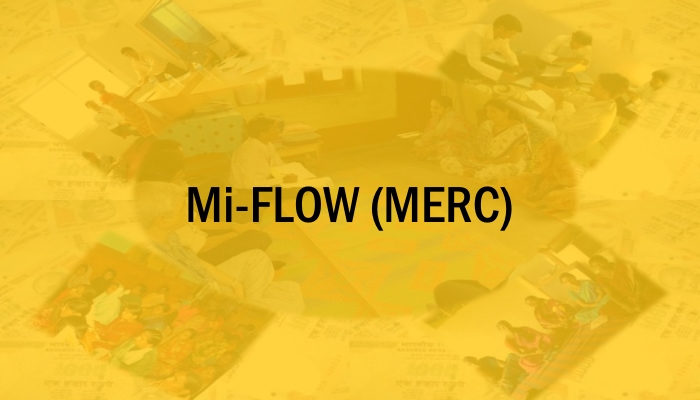In the modern data-driven world, managing large volumes of data efficiently is crucial for businesses and individuals alike. MERC LTFS (Linear Tape File System) offers a reliable and scalable solution for data storage and management.

This guide will explore what MERC LTFS is, its key benefits, how it works, and best practices to ensure optimal performance.
What is Merc LTFS?
MERC LTFS stands for MERC Linear Tape File System, a technology designed to enhance data storage by utilizing linear tape systems. LTFS allows users to store and retrieve data on magnetic tapes in a manner similar to traditional file systems, making it easier to manage and access archived data.
Unlike conventional tape storage, LTFS enables drag-and-drop functionality, providing a seamless user experience.
Why Choose Merc LTFS?
There are several reasons why businesses and individuals choose MERC LTFS for data storage:
- Cost-Effectiveness: Tape storage is generally more affordable than traditional hard drives and SSDs.
- Longevity: Magnetic tapes have a longer lifespan compared to other storage media.
- High Storage Capacity: LTFS supports large-scale data storage, making it ideal for archiving massive datasets.
- Energy Efficiency: Tape storage consumes less power compared to disk-based storage solutions.
- Security & Reliability: LTFS ensures data integrity and protection against cyber threats.
How Does Merc LTFS Work?
MERC LTFS functions by integrating a file system layer onto traditional tape storage. Here’s how it works:
- Formatting the Tape: Before use, the tape must be formatted with an LTFS-compatible structure.
- Mounting the Tape: Once formatted, the tape can be mounted on a system, appearing as a standard storage drive.
- Drag-and-Drop Interface: Users can copy, move, or delete files as they would on a regular hard drive.
- Metadata Storage: LTFS stores metadata separately, enabling quick indexing and retrieval of files.
- Seamless Backup & Archiving: Businesses can automate backups, ensuring secure data retention.
Applications of Merc LTFS
MERC LTFS is widely used in various industries due to its high-capacity storage and data preservation capabilities. Common applications include:
- Media & Entertainment: Used for archiving high-resolution videos and digital assets.
- Healthcare: Securely stores patient records and medical imaging data.
- Finance: Ensures long-term storage of transaction records and compliance documents.
- Research & Development: Preserves extensive datasets for scientific studies and innovation projects.
- Government & Defense: Stores classified information with high security and reliability.
Best Practices for Using Merc LTFS
To maximize the benefits of MERC LTFS, follow these best practices:
- Regularly Verify Data Integrity: Perform routine checks to ensure data accuracy.
- Use High-Quality Tape Media: Invest in durable, reliable tapes for long-term storage.
- Implement Proper Labeling: Organize tapes systematically to simplify retrieval.
- Keep Backup Copies: Store duplicates in different locations for added security.
- Update LTFS Software: Ensure you are using the latest version to benefit from improved performance and security patches.
Common Mistakes & How to Avoid Them
Avoiding common errors will improve the efficiency and reliability of MERC LTFS. Here are some pitfalls and solutions:
- Not Regularly Cleaning Tape Drives: Dust buildup can degrade performance. Clean drives periodically.
- Overwriting Important Data: Always double-check before overwriting critical files.
- Skipping Firmware Updates: Outdated firmware can lead to compatibility issues.
- Neglecting Disaster Recovery Planning: Always have a recovery plan in case of hardware failure.
- Poor Tape Handling: Store tapes in a controlled environment to prevent damage.
FAQs About Merc LTFS
Q: Is MERC LTFS compatible with all operating systems?
A: Most modern operating systems, including Windows, macOS, and Linux, support LTFS.
Q: How long can data be stored on LTFS tapes?
A: Properly stored LTFS tapes can retain data for 30 years or more.
Q: Can LTFS be used for real-time data access?
A: While LTFS is primarily for archiving, it allows near-instant access to stored files.
Q: What type of businesses benefit most from LTFS?
A: Media production, healthcare, finance, research, and government agencies benefit the most.
Conclusion
MERC LTFS is a powerful, cost-effective, and reliable solution for long-term data storage. Its ease of use, scalability, and security make it an excellent choice for businesses and individuals looking to archive and manage large datasets efficiently.
By following best practices and avoiding common mistakes, users can fully leverage the advantages of LTFS technology.



trycloudhost
great and very helpful blog I like amazing work
Sushil
very nice and the very helpful blog commenting Sites List that you have posted. I like it very much please keep doing this amazing work.
shiwaji
Hi,
Thanks for excellent blog post
great blogging